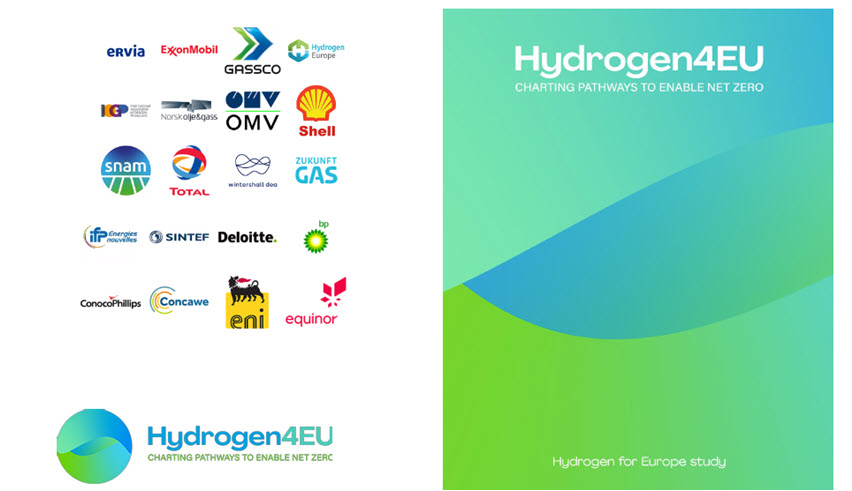
Brussels–Hydrogen technologies will play an essential role in reaching the Green Deal’s 2050 net-zero targets by decarbonizing hard-to-abate sectors, addressing gaps left by other decarbonization solutions such as efficiency and electrification, and supporting renewable integration, according to a new study released today. The study finds that total demand in 2030 could increase up to three times higher than the EU’s Hydrogen Strategy projections.
“As the EU takes the first legislative steps to put its 2050 goals into action, the study shows that the contribution of hydrogen to full decarbonisation could go far beyond what the EU Hydrogen Strategy suggests,” said Johannes Trüby, Director for Energy and Regulation at Deloitte Economic Advisory. “Based on a comprehensive analysis of the European energy system, our models have shown that hydrogen will be essential for steel, chemicals, and heavy-duty transportation and that a mix of renewable and low-carbon hydrogen is best placed to deliver on the Climate Law’s net-zero target.”
The study looks at two policy scenarios charting pathways for hydrogen to contribute to the EU’s goal of net-zero emissions by 2050, based on actual European targets and transparent modeling frameworks. It looks at the technology mix, the cost of the transition, and risks associated with various policy choices. It finds that the contribution of hydrogen to decarbonising the EU’s energy system can well exceed EU projections, with demand exceeding 100 million tonnes of H2 by 2050. Low-carbon hydrogen plays an essential role in supporting the deployment of renewable hydrogen and integration of higher volumes of renewable energy. In both scenarios, renewable hydrogen scales up rapidly after 2030, however, a more competitive technology mix enables a lower-cost and more effective pathway to net zero.
• More than half of the total gross final energy consumption is supplied by non-electrified technologies in 2050.• Hydrogen is essential to get the EU to net zero, particularly where electrification and efficiency gains are challenging.
• Hydrogen can unlock decarbonization of hard-to-abate sectors such as transport – where demand exceeds 50 Mt H2 in 2050 – and the steel and chemical industries, with a demand of 45 Mt H2.
• Renewable and low carbon hydrogen are both needed for net-zero, with natural gas and CCS remaining essential even with higher renewable ambition.• A stronger renewable push requires infrastructure and value chain investments and represents a total system cost of an additional 70 billion per year compared to a technology diversity scenario.
The study was conducted by Research partners IFP Énergies Nouvelles, SINTEF, and Deloitte on behalf of the funding partners of Hydrogen4EU. For additional details, the full study may be found at https://www.hydrogen4eu.com/projects
About the project partners
Hydrogen4EU is a cross-sectoral research project aiming to concretely assess the potential contribution of low-carbon and renewable hydrogen in reaching the European energy transition goals. Based on modeling prepared by the project’s Research partners, IFP Énergies Nouvelles (research), SINTEF (research) and Deloitte (project management), the project aims to chart pathways exploring the role of hydrogen in a decarbonised European energy system. The research was funded by 17 partners: BP, ConocoPhillips, Concawe, ENI, Equinor, Ervia, ExxonMobil, Gassco, Hydrogen Europe, IOGP, Norwegian Oil & Gas Association, OMV, Shell, Snam, Total, Wintershall Dea, Zukunft Gas.
Source: Hydrogen4EU
Read the most up to date Fuel Cell and Hydrogen Industry news at FuelCellsWorks




